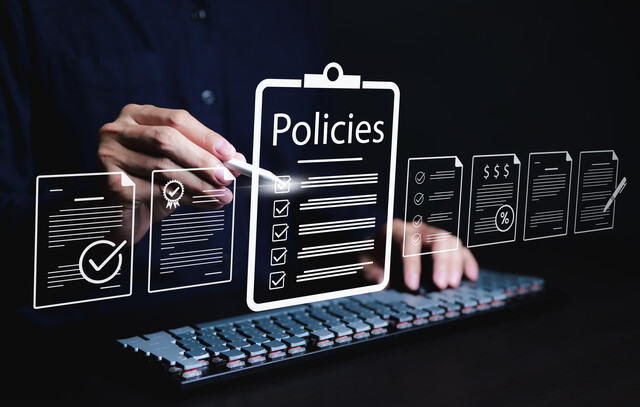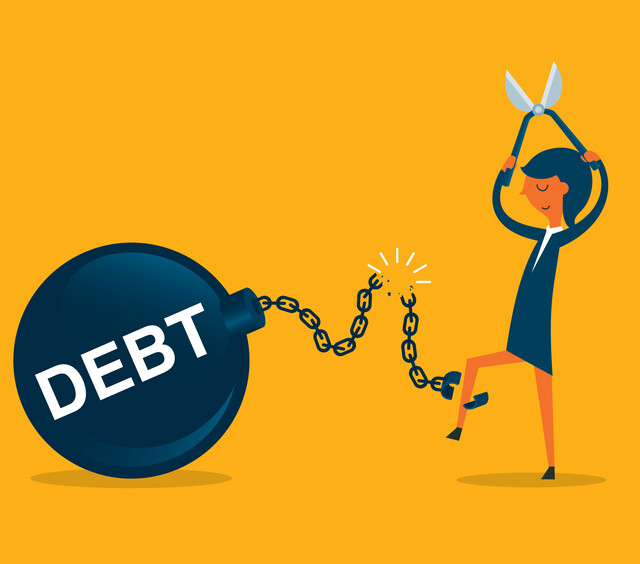Online Class: Economics 201

-
16Lessons
-
32Exams &
Assignments -
15Hours
average time -
1.5CEUs
Course Description
Introduction to Real-world Economics: Bridging the Gap Between Theory and Practicality
Economics is deeply woven into the fabric of our everyday lives. Each day, we navigate decisions influenced by economic principles, from simple choices at the grocery store to complex financial strategies. This interconnectedness has only grown stronger over the years, positioning economics at the heart of our personal, societal, and global dynamics.
Course Overview
Our primary objective in this course is to provide you with a robust understanding of economics, ensuring you're well-equipped to appreciate its broad spectrum of applications. We've meticulously designed this curriculum to demystify the fundamental tenets of economics, introducing you to key concepts such as supply and demand dynamics, the role of interest rates, and the impacts of inflation.
While economics can often seem abstract and intimidating, our approach is grounded in real-world examples. We want to show you how deeply economics is entrenched in your daily life and the greater world. By understanding economic theories, you'll gain insights into the forces propelling our economies, recognize the confluence of statistics and economics in shaping financial forecasts, and leverage this knowledge for both personal and professional advantages.
From comprehending the rationale behind taxes to acquiring investment insights and anticipating market trends, our course presents a wealth of valuable insights.
Detailed Curriculum Outline
-
Lesson 1: Supply and Demand Model - Delve into the foundational concept that drives markets and pricing. Understand the factors that influence these dynamics.
-
Lesson 2: Supply and Demand Curves and Elasticity - Explore how changes in the marketplace can affect product prices and consumer demand.
-
Lesson 3: Marginalism - Unpack the importance of incremental changes and how they can have significant implications for decision-making in business and personal finance.
-
Lesson 4: Fiscal Policy and Monetary Policy - Discover how governments and central banks steer economies towards growth and stability.
-
Lesson 5: Economic Growth, Stimulus, and Stabilization - Examine the tools at the disposal of policymakers to foster economic expansion and mitigate recessions.
-
Lesson 6 & 7: Interest Rates - Dive deep into the world of interest rates, understanding their profound effect on borrowing, lending, and overall economic health.
-
Lesson 8: Inflation and Deflation - Decode the causes and consequences of rising and falling prices and their influence on purchasing power.
-
Lesson 9: Financial Markets and Investing - Navigate the intricacies of the financial world, gaining insights into smart investment strategies.
-
Lesson 10: Taxation Structures - Understand various tax systems, their implementation, and their impact on individuals and businesses.
-
Lesson 11: Public Finance - Explore how governments manage budgets, fund projects, and ensure fiscal responsibility.
-
Lesson 12: Revenue and Economic Forecasting - Learn the art and science of predicting future economic trends based on current data.
-
Lesson 13: Economic Indicators and Statistical or Probability Economics - Familiarize yourself with the key indicators that economists use to gauge the health of an economy.
-
Lesson 14: Marriage of Statistics and Econometrics - Understand the synergy between statistical techniques and economic data in making informed predictions.
-
Lesson 15: Economic Books and Additional Resources - Delve into seminal works that have shaped the field of economics and discover resources to continue your economic journey.
-
Lesson 16: Final Thoughts - Reflect on the learnings from the course and how you can apply these insights in real-world scenarios.
Why Enroll?
If you've ever wondered about the intricacies of our economic systems or aimed to make more informed financial decisions, this course offers an invaluable foundation. We believe in empowering our students with knowledge that translates to real-life advantages, making you more informed citizens, professionals, and decision-makers. Join us on this enlightening journey into the world of economics.
Course Lessons
Lesson 1. Balancing Act: Market Structures and Economic Equilibrium
 Lesson 1 Video
Lesson 1 Video Review Practice Worksheet: Lesson-1-WorkSheet-9453.pdf
Review Practice Worksheet: Lesson-1-WorkSheet-9453.pdf Lesson discussions: Reasons for Taking this Course
Lesson discussions: Reasons for Taking this Course Complete: Lesson 1 Assignment
Complete: Lesson 1 Assignment Assessment: Lesson 1 Quiz
Assessment: Lesson 1 Quiz
Lesson 2. Understanding Supply and Demand Curves
 Lesson 2 Video
Lesson 2 Video Review Practice Worksheet: Lesson-2-HomeWork-9454.pdf
Review Practice Worksheet: Lesson-2-HomeWork-9454.pdf Complete: Lesson 2 Assignment
Complete: Lesson 2 Assignment Assessment: Lesson 2 Quiz
Assessment: Lesson 2 Quiz
Lesson 3. Marginalism in Economics: A Historical and Practical Overview
 Lesson 3 Video
Lesson 3 Video Review Practice Worksheet: Lesson-3-Activity-9455.pdf
Review Practice Worksheet: Lesson-3-Activity-9455.pdf Complete: Lesson 3 Assignment
Complete: Lesson 3 Assignment Assessment: Lesson 3 Quiz
Assessment: Lesson 3 Quiz
Lesson 4. Balancing Acts: Understanding Federal Economic Strategies
 Lesson 4 Video
Lesson 4 Video Review Practice Worksheet: Lesson-4-Activity-9456.pdf
Review Practice Worksheet: Lesson-4-Activity-9456.pdf Lesson discussions: Nobels To You!
Lesson discussions: Nobels To You! Complete: Lesson 4 Assignment
Complete: Lesson 4 Assignment Assessment: Lesson 4 Quiz
Assessment: Lesson 4 Quiz
Lesson 5. Strategic Stimulus Solutions for Economic Revival
 Lesson 5 Video
Lesson 5 Video Review Practice Worksheet: Lesson-5-HomeWork-9457.pdf
Review Practice Worksheet: Lesson-5-HomeWork-9457.pdf Lesson discussions: Just For Fun
Lesson discussions: Just For Fun Complete: Lesson 5 Assignment
Complete: Lesson 5 Assignment Assessment: Lesson 5 Quiz
Assessment: Lesson 5 Quiz
Lesson 6. Nominal vs. Real Interest Rates: What You Need to Know
 Lesson 6 Video
Lesson 6 Video Review Practice Worksheet: Lesson-6-WorkSheet-9458.pdf
Review Practice Worksheet: Lesson-6-WorkSheet-9458.pdf Complete: Lesson 6 Assignment
Complete: Lesson 6 Assignment Assessment: Lesson 6 Quiz
Assessment: Lesson 6 Quiz
Lesson 7. Interest Rates and Economic Health: An Intricate Relationship
 Lesson 7 Video
Lesson 7 Video Review Practice Worksheet: Lesson-7-WorkSheet-9459.pdf
Review Practice Worksheet: Lesson-7-WorkSheet-9459.pdf Complete: Lesson 7 Assignment
Complete: Lesson 7 Assignment Assessment: Lesson 7 Quiz
Assessment: Lesson 7 Quiz
Lesson 8. Economic Cycles: Decoding Booms and Recessions
 Lesson 8 Video
Lesson 8 Video Review Practice Worksheet: Lesson-8-HomeWork-9460.pdf
Review Practice Worksheet: Lesson-8-HomeWork-9460.pdf Complete: Lesson 8 Assignment
Complete: Lesson 8 Assignment Assessment: Lesson 8 Quiz
Assessment: Lesson 8 Quiz
Lesson 9. Financial Markets: Structures, Types, and Their Functions
 Lesson 9 Video
Lesson 9 Video Review Practice Worksheet: Lesson-9-Activity-9461.pdf
Review Practice Worksheet: Lesson-9-Activity-9461.pdf Complete: Lesson 9 Assignment
Complete: Lesson 9 Assignment Assessment: Lesson 9 Quiz
Assessment: Lesson 9 Quiz
Lesson 10. A Journey Through Taxation: From Historical Foundations to Modern Complexities
 Lesson 10 Video
Lesson 10 Video Review Practice Worksheet: Lesson-10-HomeWork-9462.pdf
Review Practice Worksheet: Lesson-10-HomeWork-9462.pdf Complete: Lesson 10 Assignment
Complete: Lesson 10 Assignment Assessment: Lesson 10 Quiz
Assessment: Lesson 10 Quiz
Lesson 11. Fiscal Choices: A Concise Examination
 Lesson 11 Video
Lesson 11 Video Review Practice Worksheet: Lesson-11-Downloadable-9463.pdf
Review Practice Worksheet: Lesson-11-Downloadable-9463.pdf Complete: Lesson 11 Assignment
Complete: Lesson 11 Assignment Assessment: Lesson 11 Quiz
Assessment: Lesson 11 Quiz
Lesson 12. The Art and Science of Revenue Prediction
 Lesson 12 Video
Lesson 12 Video Review Practice Worksheet: Lesson-12-WordSearch-9464.pdf
Review Practice Worksheet: Lesson-12-WordSearch-9464.pdf Complete: Lesson 12 Assignment
Complete: Lesson 12 Assignment Assessment: Lesson 12 Quiz
Assessment: Lesson 12 Quiz
Lesson 13. Economic Indicator Breakdown
 Lesson 13 Video
Lesson 13 Video Review Practice Worksheet: Lesson-13-WordSearch-9465.pdf
Review Practice Worksheet: Lesson-13-WordSearch-9465.pdf Complete: Lesson 13 Assignment
Complete: Lesson 13 Assignment Assessment: Lesson 13 Quiz
Assessment: Lesson 13 Quiz
Lesson 14. Understanding Econometrics: A Brief Introduction
 Lesson 14 Video
Lesson 14 Video Review Practice Worksheet: Lesson-14-Activity-9466.pdf
Review Practice Worksheet: Lesson-14-Activity-9466.pdf Complete: Lesson 14 Assignment
Complete: Lesson 14 Assignment Assessment: Lesson 14 Quiz
Assessment: Lesson 14 Quiz
Lesson 15. Your Guide to Essential Economic Literature
 Lesson 15 Video
Lesson 15 Video Review Practice Worksheet: Lesson-15-WordSearch-9467.pdf
Review Practice Worksheet: Lesson-15-WordSearch-9467.pdf Complete: Lesson 15 Assignment
Complete: Lesson 15 Assignment Assessment: Lesson 15 Quiz
Assessment: Lesson 15 Quiz
Lesson 16. Understanding Economic Fundamentals
 Lesson 16 Video
Lesson 16 Video Review Practice Worksheet: Lesson-16-WorkSheet-9468.pdf
Review Practice Worksheet: Lesson-16-WorkSheet-9468.pdf Lesson discussions: What Did I Learn?; Program Evaluation Follow-up Survey (End of Course); Course Comments
Lesson discussions: What Did I Learn?; Program Evaluation Follow-up Survey (End of Course); Course Comments Complete: Lesson 16 Assignment
Complete: Lesson 16 Assignment Assessment: Economics - Final Exam
Assessment: Economics - Final Exam
Learning Outcomes
- Compare and contrast market structures like monopoly and perfect competition, identifying their influence on supply, demand, and pricing strategies.
- Define and illustrate the economic equilibrium using the supply and demand model, explaining how market dynamics achieve a balance between supply and demand.
- Calculate the elasticity of a product given percentage changes in price and quantity using the elasticity formula.
- Describe how supply and demand reach equilibrium when plotted on a graph.
- Differentiate between total utility and marginal utility in the context of consumer behavior and market supply and demand dynamics.
- Recognize how the subjective theory of value influences consumer decision-making patterns based on personal satisfaction and utility.
- Define fiscal policy as the government's power to tax and spend to achieve economic goals.
- Describe the impact of monetary policy on inflation and economic output through the regulation of money supply and credit.
- Describe key components and considerations of an effective government stimulus package in achieving short-term economic growth.
- Recognize the role of the Federal Reserve Bank in managing economic downturns through stimulus options.
- Define interest rate as the cost of borrowing money expressed as a percentage of the principal.
- Explain the impact of interest rate fluctuations on consumer spending and economic growth.
- Define how changes in interest rates influence consumer spending and investment decisions, using current economic indicators.
- Demonstrate mastery of lesson content at levels of 70% or higher.
Additional Course Information

- Document Your Lifelong Learning Achievements
- Earn an Official Certificate Documenting Course Hours and CEUs
- Verify Your Certificate with a Unique Serial Number Online
- View and Share Your Certificate Online or Download/Print as PDF
- Display Your Certificate on Your Resume and Promote Your Achievements Using Social Media

Student Testimonials
- "Thank you very much for all your answers to my emails. Through this course I can see you are very well prepared instructor. Congrats for the course." -- Mercedes P.
Related Courses
-
 9 hours
0.9 CEUs
Event Planning 101
+ More Info
9 hours
0.9 CEUs
Event Planning 101
+ More Info
-
 11 hours
1.1 CEUs
Mediation 101
+ More Info
11 hours
1.1 CEUs
Mediation 101
+ More Info
-
 11 hours
1.1 CEUs
How to Write Effective Policies and Procedures
+ More Info
11 hours
1.1 CEUs
How to Write Effective Policies and Procedures
+ More Info
-
 6 hours
0.6 CEUs
Debt Reduction
+ More Info
6 hours
0.6 CEUs
Debt Reduction
+ More Info
-
 8 hours
0.8 CEUs
Legal Terminology 101
+ More Info
8 hours
0.8 CEUs
Legal Terminology 101
+ More Info
-
 5 hours
0.5 CEUs
Critical Thinking Skills
+ More Info
5 hours
0.5 CEUs
Critical Thinking Skills
+ More Info
-
 6 hours
0.6 CEUs
Persuasion Techniques
+ More Info
6 hours
0.6 CEUs
Persuasion Techniques
+ More Info
-
 10 hours
1.0 CEUs
Mastering Sales Skills 101
+ More Info
10 hours
1.0 CEUs
Mastering Sales Skills 101
+ More Info
-
 11 hours
1.1 CEUs
Business Writing
+ More Info
11 hours
1.1 CEUs
Business Writing
+ More Info
-
 7 hours
0.7 CEUs
Retirement Planning
+ More Info
7 hours
0.7 CEUs
Retirement Planning
+ More Info
-
 2 hours
0.2 CEUs
Understanding Insurance Types
+ More Info
2 hours
0.2 CEUs
Understanding Insurance Types
+ More Info
-
 5 hours
0.5 CEUs
Accounts Receivable Training
+ More Info
5 hours
0.5 CEUs
Accounts Receivable Training
+ More Info
-
 7 hours
0.7 CEUs
Accounts Payable Training
+ More Info
7 hours
0.7 CEUs
Accounts Payable Training
+ More Info
-
 8 hours
0.8 CEUs
Investing 201: Intro to Commodity, Options, and Futures Markets
+ More Info
8 hours
0.8 CEUs
Investing 201: Intro to Commodity, Options, and Futures Markets
+ More Info
-
 5 hours
0.5 CEUs
Operations Management 101
+ More Info
5 hours
0.5 CEUs
Operations Management 101
+ More Info
-
 2 hours
0.2 CEUs
Purchasing and Vendor Management 101
+ More Info
2 hours
0.2 CEUs
Purchasing and Vendor Management 101
+ More Info
-
 5 hours
0.5 CEUs
Fundraising 101
+ More Info
5 hours
0.5 CEUs
Fundraising 101
+ More Info
-
 6 hours
0.6 CEUs
Confidence Building
+ More Info
6 hours
0.6 CEUs
Confidence Building
+ More Info
-
 7 hours
0.7 CEUs
Conflict Resolution
+ More Info
7 hours
0.7 CEUs
Conflict Resolution
+ More Info
-
 15 hours
1.5 CEUs
Customer Service 101
+ More Info
15 hours
1.5 CEUs
Customer Service 101
+ More Info
-
 9 hours
0.9 CEUs
How to Write a Grant Proposal
+ More Info
9 hours
0.9 CEUs
How to Write a Grant Proposal
+ More Info
-
 7 hours
0.7 CEUs
Creating an Effective Sales Team
+ More Info
7 hours
0.7 CEUs
Creating an Effective Sales Team
+ More Info
-
 5 hours
0.5 CEUs
Personal Finance 101: How to Manage Your Money
+ More Info
5 hours
0.5 CEUs
Personal Finance 101: How to Manage Your Money
+ More Info
-
 7 hours
0.7 CEUs
Negotiation Skills
+ More Info
7 hours
0.7 CEUs
Negotiation Skills
+ More Info
-
 8 hours
0.8 CEUs
Special Events Planning
+ More Info
8 hours
0.8 CEUs
Special Events Planning
+ More Info
-
 12 hours
1.2 CEUs
How to Write Case Studies
+ More Info
12 hours
1.2 CEUs
How to Write Case Studies
+ More Info
-
 7 hours
0.7 CEUs
Innovative Thinking Skills
+ More Info
7 hours
0.7 CEUs
Innovative Thinking Skills
+ More Info
-
 11 hours
1.1 CEUs
Writing Effective Emails in the Workplace
+ More Info
11 hours
1.1 CEUs
Writing Effective Emails in the Workplace
+ More Info






